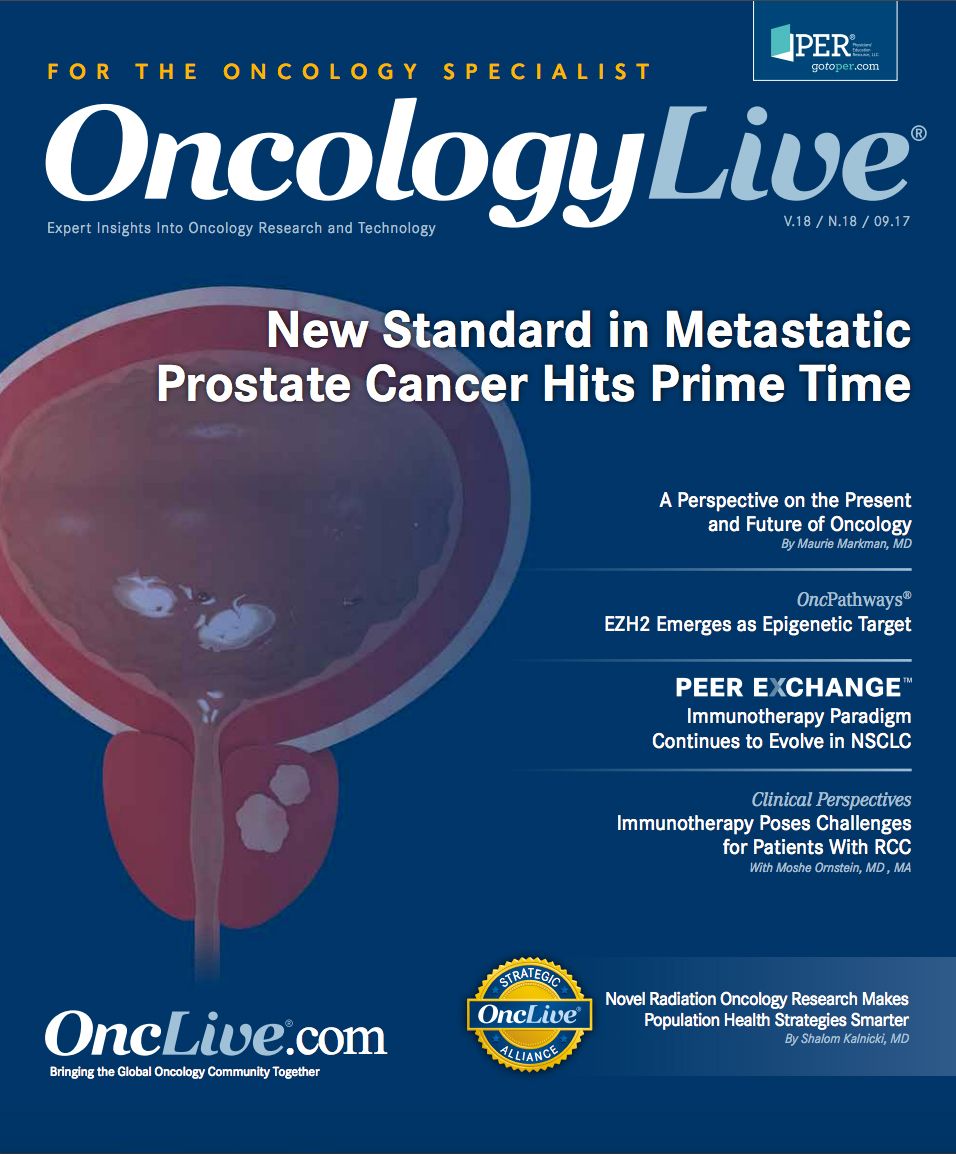Through the ASCO Lens: A Perspective on the Present and Future of Oncology
The clinical oncology community, along with patients, families, pharmaceutical companies, investors, and third-party payers, eagerly awaits the plenary session presentations at the ASCO annual meetings as representing the most important and impactful of the thousands of abstracts submitted each year.
Maurie Markman, MD
The clinical oncology community, along with patients, families, pharmaceutical companies, investors, and third-party payers, eagerly awaits the plenary session presentations at the American Society of Clinical Oncology (ASCO) annual meetings as representing the most important and impactful of the thousands of abstracts submitted each year. In any given year, the abstracts selected by ASCO’s Scientific Program Committee range from interesting to paradigm changing but always represent, in the opinion of the committee and ASCO’s leadership, first-class clinical or translational investigative efforts.
In this regard, the plenary session of the 2017 ASCO Annual Meeting in June was no different. However, the 4 abstracts presented during the session represent an interesting opportunity to highlight the existing paradigm for the conduct of oncology clinical trials, problems with this approach, the future direction of investigative efforts, and the essential role that patient-reported outcomes will play in that future.
The first study requires little discussion as it simply represents what many consider the gold standard: a very large (>1000 patients), double-blind randomized phase III trial designed to demonstrate a statistically significant improvement in overall survival.1 This trial involved patients with newly diagnosed high-risk metastatic hormone-naïve prostate cancer; investigators demonstrated a favorable outcome associated with adding abiraterone acetate plus prednisone to standard androgen deprivation therapy compared with standard therapy plus placebo.
Nothing wrong here, except perhaps for a necessary call for future discussion of the costeffectiveness of this approach (compared with alternative clinical trial options) and the substantial time, cost, and effort required to conduct such studies. This situation becomes increasingly problematic in light of the numbers of therapeutic strategies needed to be examined in any given clinical setting, but particularly with ever smaller molecularly defined patient subgroups. Further, the failure of the large majority of so-called evidencebased randomized phase III trials to appropriately examine real-world patient populations, including the elderly patients who make up an ever-increasing percentage of the population of patients with cancer, needs to be acknowledged.
However, it is the other 3 abstracts that provide an opportunity to critically highlight the need to aggressively challenge existing cancer research paradigms. The first abstract in this category was a complex and substantial statistical effort to determine if the 6-month standard of care in the duration of adjuvant oxaliplatin-based chemotherapy in stage III colon cancer could be safely reduced to 3 months without a clinically meaningful loss of efficacy as measured by disease-free survival.2 A major justification for this effort was the cumulative neurotoxicity associated with oxaliplatin. This investigation entailed a pooled analysis of 6 individual concurrently conducted prospective phase III clinical trials involving more than 12,000 patients from 12 countries.
Although there is a clearly relevant clinical concern examined in this trial, the investigators placed remarkable faith in a statistical strategy to provide a definitive resolution to the matter. The studies involved patients with different environmental and genetic backgrounds, tumor stages, and treatment regimens. However, the greatest concern was the necessary—albeit quite arbitrary—decision to define a statistical level of noninferiority that would permit the investigators to declare that the 3-cycle regimen either was or was not “acceptable.”
What is wrong with simply conducting clinically meaningful studies—for example, 3 versus 6 cycles of oxaliplatin-based adjuvant chemotherapy, if that is the question being addressed—and then presenting the data on efficacy and toxicity to the patient? Patients can then decide the most appropriate option in their care, rather than statisticians.
The third study was a phase III randomized trial (N = 302 patients) that examined the clinical utility of the PARP inhibitor olaparib in germline BRCAmutated, HER2-negative metastatic breast cancer compared with one of several standard-of-care cytotoxic chemotherapy agents of the physician’s choice. The findings demonstrated a highly statistically significant improvement in progression-free survival (median, 7.0 vs 4.2 months; HR, 0.58; P = .0009) associated with the targeted therapeutic in this clinical setting.3 The objective response rate to olaparib (59.9%) was more than double that observed with chemotherapy (28.8%).
This study convincingly demonstrated the role of PARP inhibitors in the management of appropriately selected patients with HER2-negative metastatic breast cancer and once again revealed the substantial clinical utility of the process of precision cancer medicine. The goal of this process is to discover biomarkers that can be employed to select an optimal treatment strategy in a patient with cancer at a particular time in the natural history of the malignancy in that individual to enhance the opportunity for a favorable clinical outcome.
Finally, we come to the most important study presented at 2017 ASCO, and it did not involve a new/novel drug or a complex statistical analysis. Rather, the study addressed the simple question of whether asking patients (N = 766) receiving routine outpatient chemotherapy for metastatic cancers about their symptoms via a Web-based portal, with subsequent responses by the patient’s healthcare team, could favorably impact clinical outcomes compared with usual care without Web-based symptom reporting.4
This single-center study, initiated in 2007, demonstrated a positive effect for the patient-reporting intervention on a variety of clinically relevant factors but the stunning outcome presented at this meeting was that this simple strategy led to a statistically significant improvement in overall survival (median, 31.2 vs 26.0 months; P = .03).4 What more needs to be said, other than to inquire when such patient reporting of symptoms will become the standard of care in cancer management?
References
- Fizazi K, Tran N, Fein LE, et al; on behalf of the LATITUDE Investigators. LATITUDE: a phase III, double-blind randomized trial of androgen deprivation therapy with abiraterone acetate plus prednisone or placebos in newly diagnosed high-risk metastatic hormone-naïve prostate cancer [ASCO abstract LBA3]. J Clin Oncol. 2017;35(suppl). meetinglibrary.asco.org/record/152852/abstract.
- Shi Q, Sobrero AF; Shields AF, et al. Prospective pooled analysis of six phase III trials investigating duration of adjuvant oxaliplatin-based therapy (3 vs 6 months) for patients (pts) with stage III colon cancer: the IDEA (International Duration Evaluation of Adjuvant chemotherapy) collaboration [ASCO abstract LBA1]. J Clin Oncol. 2017;35(suppl). meetinglibrary.asco.org/record/147028/abstract.
- Robson ME, Im SA, Senkus E, et al. OlympiAD: phase III trial of olaparib monotherapy versus chemotherapy for patients (pts) with HER2-negative metastatic breast cancer (mBC) and a germline BRCA mutation (gBRCA) [ASCO abstract LBA4]. J Clin Oncol. 2017;35(suppl). meetinglibrary.asco.org/record/153351/abstract.
- Basch EM, Deal AM, Dueck AC, et al. Overall survival results of a randomized trial assessing patient-reported outcomes for symptom monitoring during routine cancer treatment [ASCO abstract LBA2]. J Clin Oncol. 2017;35(suppl). meetinglibrary.asco.org/ record/147027/abstract.




